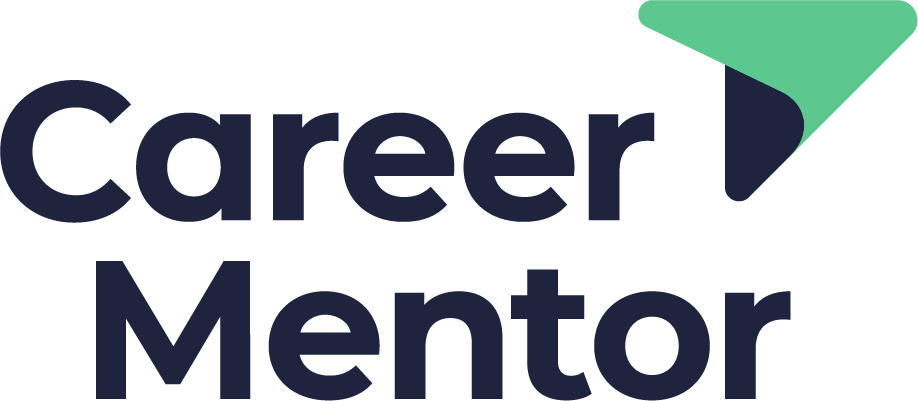Fostering career resilience ahead of an economic downturn
We know that all economies and industries go through cycles. Layer structural changes on top of these, and we can anticipate that there will be tough times ahead. So what can we do to prepare and ensure we have some degree of Career Resilience?
When is it time to make a major pivot?
Everything changes and nothing lasts forever, so at some point in your career, what you’re doing and what you want to do will come to an end. This may be for one of two fundamental reasons. Let’s look at this in a little more detail as we offer you some notions to consider.
Is it possible to influence people before you even meet them?
How useful would it be in business to influence future colleagues and prospective customers before you have even met them? Is this even possible?
I would argue, yes. The answer is to create a Professional Brand.
My job search is just not working. What do I do?
Sometimes you might feel that you’re doing all the right things in your job search, but simply not getting much traction. what should you do to get that job that you really want? The answer probably lies in one of three areas.
Being ghosted in your job search campaign
According to People Management Magazine, 76% of candidates have been ‘ghosted’ in their job application process. In the same survey, it was found that the majority of candidates would rather hear a ‘no’ than nothing at all. So let’s see at ghosting, when it happens, and what - if anything - can be done to reduce the likelihood of it happening to you in your job search.
LinkedIn: 8 basic steps for profile optimisation
Financial Services professionals might consider that optimising is a basic thing to do in order to increase the career opportunities they’re presented with during their career. Choice, allied with critical selection and a plan, are good. Here are some basic steps that you can do to take the first steps to optimise your Profile.
Interview agendas: things to bear in mind
When preparing for a job interview, it would be handy to know what sort of things the interviewer will want to ask about. To an extent, that’s been answered by Richard N Bolles in his classic book, “What Colour Is My Parachute”, where he discusses the four umbrellas. Is it possible to go deeper than that and how much depends on who will be interviewing you? That’s the focus of this short read.
Everything counts in building your career equity
If you’re currently employed, is it possible to say that everything you see and do at work is a valuable opportunity to build your career equity? This links to an idea that someone mentioned to me recently: everything you do at work is evidence-gathering for your next job search.
In this blog, I’ll discuss some ideas that might be useful not only to progress your carer, but also so that you’re the one considered for promotion. It will also help ensure you have plenty of material to impress in any future job interview.
What’s your career equity?
As we progress through our career, it’s useful to understand the components of our career equity: the value that we’ve accumulated over the course of our career. This helps us to understand where we are and where we’ve got to so far. It also gives us the opportunity to spot any weak areas of our game and to create a plan to improve all aspects, building towards our broader career goals and vision. In this week’s blog, we’ll look at the 7 key components of your career equity.
You are the prize: know your worth in a job search
In a recent conversation with a potential client, I couldn’t understand his reluctance to reach out to decision makers and potential employers. This was despite him being highly motivated to move to a better firm. It turned out that he had a strong sense that he didn’t want to go ‘cap in hand’ and ask (or in his mind,' ‘beg’) for help, either from his network contacts or from key people who might want him to join their firm.
So what’s the mindset that drives this avoidant behaviour and how can we turn it around to maximise chances of job search success
How to handle ‘Please prepare and present your business plan’ in an interview
There may come a time in your job search when you’re asked by a firm to present your business plan as part of the recruiting process. On the one hand, you don’t want to give away your best ideas, and yet you do want to be credible.
What do I do for my second act?
F. Scott Fitzgerald once said: “There are no second acts in American lives”. It’s the idea that people who’ve done great things don’t go on to do more.
Here’s how to ask your network for help and actually get it
We all know that an important way to accelerate your job search is to be introduced to people who are senior and may be hiring managers. However, we also know that whilst promises are made in the moment, follow through and actually making the connection happens all too infrequently. So, what can you do to encourage your network contacts to actually deliver on what they say they’ll do in the moment?
Behavioural interview questions: key things to consider
Behavioural interview questions are bound to come up in almost any job interview. To deal with them effectively, they need to be answered slightly differently to 'competency questions. As part of our Foundation Coaching programme, we spend a good chunk of time looking at interviews, different question types, and how to best answer them. Clarifying what a behavioural interview question is - and how to effectively answer them - is the subject of this week’s blog.
Job search language counts: let’s be precise
Last night, I had a conversation with someone, trying to understand his job search efforts so far. Over the course of our chat, several job search ‘buzzwords’ were thrown around: networking, prospecting, marketing, to name a few. All three are absolutely central to an effective job search. That said, it’s important they’re used - and acted upon - with precision if you want your job search to be effective.
Job interviews: why being likeable matters
There’s no question that being able to demonstrate that you’re competent and have the skills and experience to do the job that they’re recruiting for is critical to success. There is, however, another factor that will often make all the difference: likeability.
Three great ways to improve the examples you give in a job interview
When giving an example to the interviewer, you want to illustrate that you’re a great candidate, perhaps the best candidate for the role. You won’t achieve this if you’re off point, boring or simply lose the interviewer in an over-complicated and verbose answer.
So, in this short read. we’ll look at how to prepare first class examples that you can use to showcase your abilities in the very best way.
Career mistakes that many learn the hard way: Part 2
If there are common career mistakes that others have learnt the hard way, let’s learn from their experiences and avoid making the same ones. This is Part 2 of a two-part series on career mistakes that many learn the hard way.
Career mistakes that many learn the hard way: Part 1
Over my 22-year career in Financial Services Executive Search and now, having been a Career Coach since the Global Financial Crisis, I’ve noticed some common career mistakes that even the most accomplished professionals make.
Forewarned is forearmed, so here’s Part 1 of a list of mistakes that many learn the hard way and can be avoided.
You think you’re about to be made redundant. What next?
There may be a different feeling at work. Some people’s behaviour towards you has shifted. You’re no longer invited to certain meetings. In all, you have a gut feeling something isn’t right. Worst case scenario, you become worried that you may be about to be let go. If you find yourself in this position, what should you do? In this week’s blog, we discuss what you should always be doing as your default and what to do as you begin to read the runes.




















